Mingqiang Huang
Winograd Algorithm for AdderNet
May 12, 2021

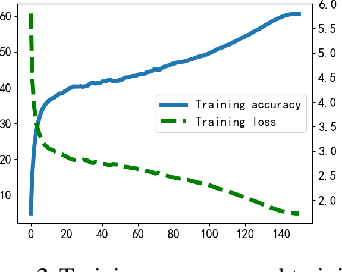

Abstract:Adder neural network (AdderNet) is a new kind of deep model that replaces the original massive multiplications in convolutions by additions while preserving the high performance. Since the hardware complexity of additions is much lower than that of multiplications, the overall energy consumption is thus reduced significantly. To further optimize the hardware overhead of using AdderNet, this paper studies the winograd algorithm, which is a widely used fast algorithm for accelerating convolution and saving the computational costs. Unfortunately, the conventional Winograd algorithm cannot be directly applied to AdderNets since the distributive law in multiplication is not valid for the l1-norm. Therefore, we replace the element-wise multiplication in the Winograd equation by additions and then develop a new set of transform matrixes that can enhance the representation ability of output features to maintain the performance. Moreover, we propose the l2-to-l1 training strategy to mitigate the negative impacts caused by formal inconsistency. Experimental results on both FPGA and benchmarks show that the new method can further reduce the energy consumption without affecting the accuracy of the original AdderNet.
AdderNet and its Minimalist Hardware Design for Energy-Efficient Artificial Intelligence
Feb 03, 2021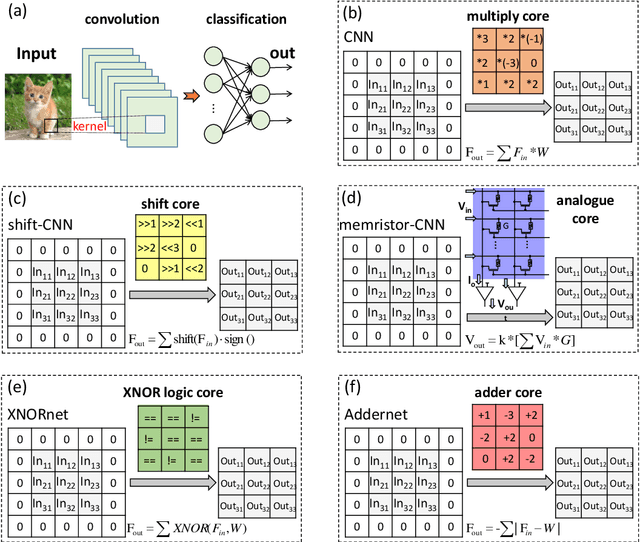
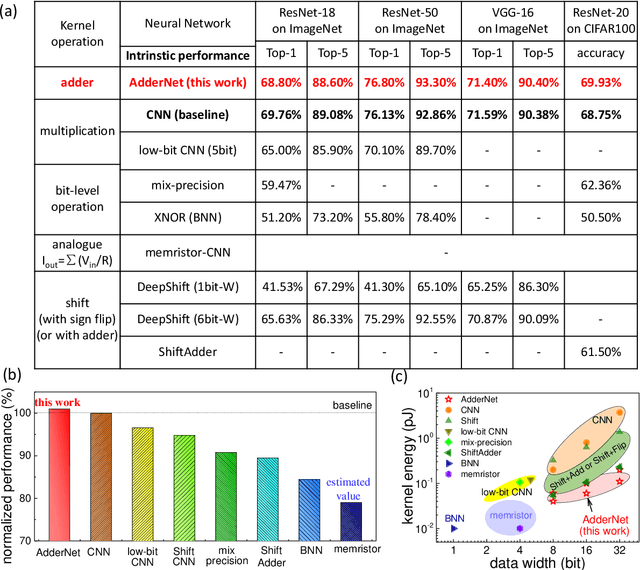
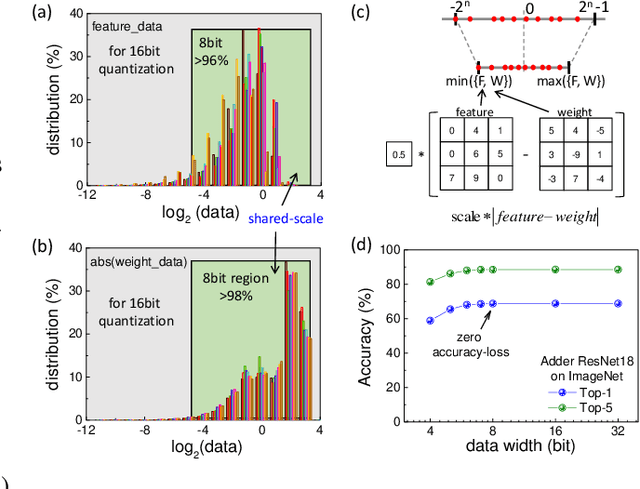
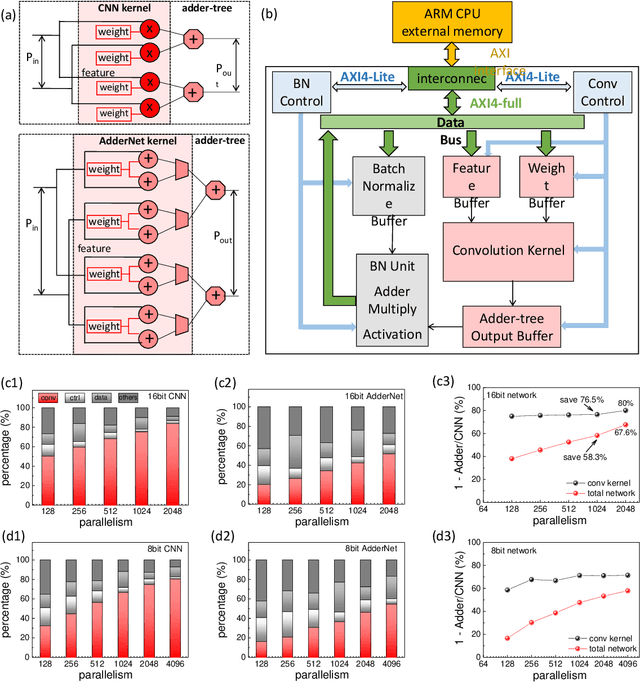
Abstract:Convolutional neural networks (CNN) have been widely used for boosting the performance of many machine intelligence tasks. However, the CNN models are usually computationally intensive and energy consuming, since they are often designed with numerous multiply-operations and considerable parameters for the accuracy reason. Thus, it is difficult to directly apply them in the resource-constrained environments such as 'Internet of Things' (IoT) devices and smart phones. To reduce the computational complexity and energy burden, here we present a novel minimalist hardware architecture using adder convolutional neural network (AdderNet), in which the original convolution is replaced by adder kernel using only additions. To maximally excavate the potential energy consumption, we explore the low-bit quantization algorithm for AdderNet with shared-scaling-factor method, and we design both specific and general-purpose hardware accelerators for AdderNet. Experimental results show that the adder kernel with int8/int16 quantization also exhibits high performance, meanwhile consuming much less resources (theoretically ~81% off). In addition, we deploy the quantized AdderNet on FPGA (Field Programmable Gate Array) platform. The whole AdderNet can practically achieve 16% enhancement in speed, 67.6%-71.4% decrease in logic resource utilization and 47.85%-77.9% decrease in power consumption compared to CNN under the same circuit architecture. With a comprehensive comparison on the performance, power consumption, hardware resource consumption and network generalization capability, we conclude the AdderNet is able to surpass all the other competitors including the classical CNN, novel memristor-network, XNOR-Net and the shift-kernel based network, indicating its great potential in future high performance and energy-efficient artificial intelligence applications.
 Add to Chrome
Add to Chrome Add to Firefox
Add to Firefox Add to Edge
Add to Edge